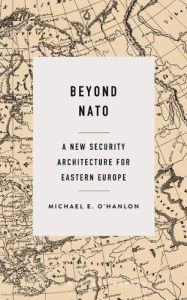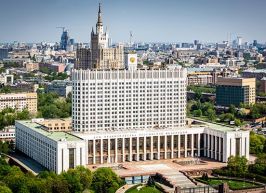Melden Sie sich bei getAbstract an, um die Zusammenfassung zu erhalten.

Melden Sie sich bei getAbstract an, um die Zusammenfassung zu erhalten.
Michael E. O’Hanlon
Beyond NATO
A New Security Architecture for Eastern Europe (The Marshall Papers)
Brookings Institution Press, 2017
Was ist drin?
How NATO and Russia could reach a mutually beneficial compromise.
Recommendation
To Western tastes, Russian president Vladimir Putin is an incorrigible autocrat who punishes dissenters at home, bullies his neighbors and takes pleasure in such political espionage as meddling in the United States’ presidential election. But to Russians, Putin is a tough-minded politician standing up against the threatening expansion of the North Atlantic Treaty Organization (NATO). In this slim volume, written prior to the impact of Donald Trump’s presidency, Brookings Institution expert Michael O’Hanlon lays out these competing viewpoints. Putin is right to feel nervous about NATO’s expansion, O’Hanlon argues in this contrarian essay. Rather than further crowding Russia, he argues, NATO should take a breather and cease expansion. O’Hanlon serves up intriguing background information, such as that Putin repeatedly warned US president George W. Bush that Iraqi leader Saddam Hussein had lied about possessing weapons of mass destruction. When Bush invaded Iraq anyway, Putin decided America was dangerously eager to build its own empire. In this well-informed overview, O’Hanlon doesn’t ignore Russia’s belligerence. getAbstract recommends it for useful insight into the Russian psyche.
Summary
About the Author
Senior fellow Michael E. O’Hanlon is research director for the Brookings Institution’s foreign policy program.




















Comment on this summary